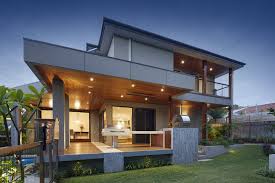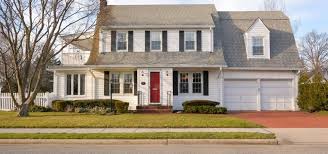What questions should I ask a custom home builder?
The idea of building your own home probably has you dreaming of cabinetry details and window treatments at night. But the stuff of dreams can become a total nightmare when your homebuilder can’t execute on their promises. What’s more, a lack of customization might leave you wanting more.A builder’s prerogative is to woo you with model homes, glowing reviews, and even upgrades. But, before you sign any contract, make sure you ask these crucial questions. Outlining your expectations ahead of time can save you time, money, and frustration in the long run.
How many years have you been building in the area?
Ideally, you’ll want a builder that’s been performing residential construction in your area for at least five years. This familiarity operating in your area is important. They’ll know how to navigate building codes, inspections, and permits. They’ll know the area’s terrain, landscaping, and property lines. They’ll know a neighborhood’s livability, desirability, and property values. The custom home builder you choose should be a valuable resource to you; especially if you’re building in an area you’re not all that familiar with.
How much experience do you have and how is it relevant to my project?
Experience matters. You’ll want a builder that’s been in the game for awhile. Someone that’s built the type or style of home you want. Someone who answered the first question in a way that assures you they know the city or county you’re building in.
Does this builder work with a dependable, trustworthy, and skilled crew?
A builder is only as good as the crew they’ve assembled for your project. While you may trust the person you’re talking to or the people you meet, you must also ask about the crew they’re bringing to the job. What’s their skillset? Are a few tradesmen? Have they undergone background checks or drug screenings? Are they dependable? Do they show up for work? How well does the builder know their laborers, tradesmen, or subcontractors? How often have they worked with them?

How much can I customize?
Understand the materials your builder plans to use to achieve the look you desire. Image: Norris Architecture But some builders keep costs in line by offering a set number of floorplans and finishes, allowing for just a few cosmetic tweaks along the way. If you’re planning on a custom job, ask the builder if customization is limited to cosmetic choices alone. Some builders allow more extensive customization, like changing floorplans, upgrading finishes, or even designing a home from scratch.
Is your model home upgraded (and what comes standard)?
Don’t sign on the dotted line until you get a clear answer of which features in the model home have been upgraded. Builders want to show off their best work, so some model homes might have upgraded cabinetry, appliances, and even lighting packages that aren’t included in the base price of the floorplan.

How many homes do you generally build in a year? How many can you handle?
In addition to knowing how many years the builder has been in business, these questions will help you get a sense about the builder’s skills and capabilities. The numbers will likely vary from year to year, but the builder should be able to give you an average or average range of homes they generally build in a year.
Asking them how many they can handle just gives you some insight into their team’s capabilities. Depending on the answer you get, you’ll be able to get a sense of how transparent the builder is about their work and how well they know their team. A builder who answers too vaguely or indicates that there is no limit is not being transparent or upfront with you and may not have a clear idea of their capabilities and limits.
Do you have client references I can call?
You’ll want to make sure you get a few references from the custom home builder you’re meeting with. It’s expected that anyone you call as a reference will provide positive feedback. Speaking with previous clients will give you a chance to get a client-side, real-life view of what it’s like working with the builder you met with. Asking about things that surprised them, things they didn’t expect, and any challenges that came up during their project will give you valuable insights to what your experience with the builder could be.

Can I show your construction contract to my lawyer before signing it?
Does the builder’s construction contract give a clear guideline for your building process? Is it thorough enough to cover the worst of problems? Does it include insurance, change order procedures, warranties, construction time, disputes, financing, builder’s liabilities, budgets, specifications of construction, and allowances?
Are you licensed & insured?
This should be a quick question with a no hesitation answer, but you may be surprised. If you are using a lender to finance the construction, they’ll require the builder to provide proof of their licensing and insurance, but if you’re not financing, make sure you receive confirmation. On insurance, it’s important to confirm the builder is not only carrying General Liability and Worker’s Compensation coverage but is also providing Builders Risk, which is equivalent to Property Insurance during construction.
What’s your warranty, and how do you handle issues?
Any reputable builder will have a 1-year warranty, and some will even have a 10-year structural warranty. What you want to understand with this question is, how does the builder handle borderline warranty items? What happens if an issue comes up in month 14? Is it’s time up, or will he help you out? This is typically a great question to ask past customers as well.
Can I trust you?
Not a question that you might ask a builder directly, but more of something that you need to observe and make a decision for yourself. The bottom line, you can’t underestimate how important it is to like, trust and respect your builder. Building a custom home is a long term relationship that continues beyond the home’s construction for at least the 1-year warranty period. Regardless of how excellent their reputation is in the area if there is any reason you are uncomfortable, why would you trust that builder with one of your most important investments?